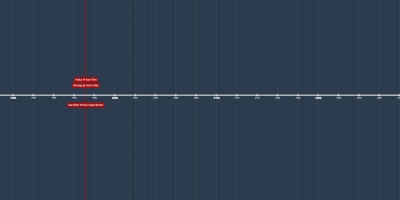Peak Emergence of 'Evolutionary' Time in Museums of Scientific Knowledge (nov 22, 1830 – oct 20, 1840)
Description:
"This narrative [of the White 'Man' as archactor and metanarrator of the story of his own development] was made possible as a consequence of a complex set of transformations governing the objects and procedures of a wide range of knowledges. The most crucial developments concerned the extensions of time produced by discoveries in the fields of geology and palaeontology, especially in the 1830s and the 1840s, and the reorientations of anthropology which this production of a deep historical time prompted in allowing for the historicization of other peoples as 'primitive'. While important differences remained between competing schools of evolutionary thought throughout the nineteenth century, the predominating tendency was one in which the different times of geology, biology, anthropology and history were connected to one another so as to form a universal time. Such a temporality links together the stories of the earth's formation, of the development of life on earth, of the evolution of human life out of animal life and its development from 'primitive to 'civilized' forms, into a single narrative which posits the modern Man (white, male, and middle class, as Catherine Hall (1992) would put it) as the outcome and, in some cases, telos of these processes."Source: Tony Bennett. The Birth of the Museum: History, Theory, Politics (1995). Pg. 38-39.
*Time range approximate
Added to timeline:
Date:
nov 22, 1830
oct 20, 1840
~ 9 years and 11 months
